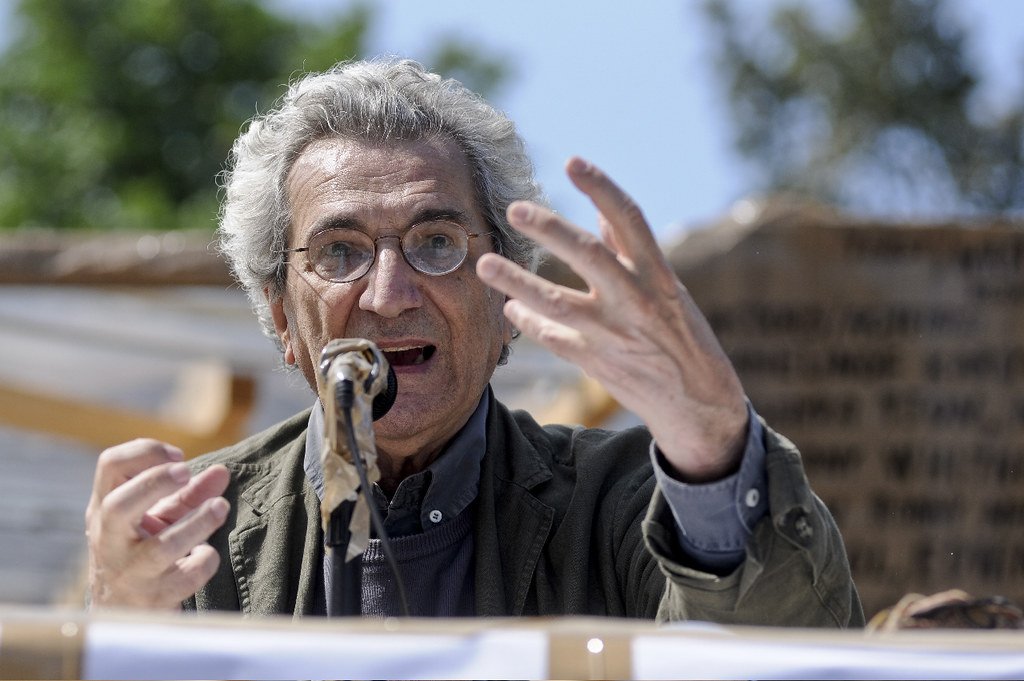
Toni Negri has died. His merits as a scholar (inseparable from those as a militant) are many: the collective creation of the workerist theoretical arsenal; the study of constituent power; the “discovery” of the materialist Machiavelli-Spinoza-Marx genealogy; the theses on Lenin; the dialogue with Foucault, Guattari, Deleuze; the analyses on empire, the multitude and the common.
In these studies, net of possible agreement or disagreement, there was to be found a strength, an obstinacy, a demon that are those of revolutionaries. With his gaze, Toni was there. There where riots made a presence, where an assembly or an institution of the commons were formed, where an expression of constituent power appeared, and, of course, where a revolution broke out. Never because he had to explain them, worse yet, explain them to the protagonists. Always, instead, to propel them, to propagate their fire. Against the autonomy of the political, Negri’s Lenin also did not lead to the vanguard party, it was rather the historical demonstration that communism could, starting from Marx’s theory, become embodied. What Negri described, however, was a paradoxical body, a “Lenin of the assemblies” that displaced, once again, any orthodoxy.
Where capital and its gendarmes made a desert, Toni did not vow to nostalgia, rather he urged looking the void in the eye. That was how she had gone through the 1980s in Italy, occupied as they were by jail, heroin and commodities. At the same time, however, he had always rejected the assumption that life could be stripped to the point of becoming bare. Under all circumstances, the life Toni looked to could rebel, resist, draw a line of flight, give itself collective forms of organization, even when it was locked up in the camp, even when it was made the object of necropolitics.
From today, then, the issue of Negri’s legacy arises. It is a complex issue. And it is not a question of making Toni a prophet, a figure that he himself considered to be gone for good. It is not just about keeping his memory alive, if possible redeeming it (and this is an all-Italian problem) from the bibartisan damnatio memorie that still weighs. Rather, it is a matter of not losing that intellectual obstinacy that was one of its hallmarks, of not conforming, of not settling for anything less than revolution. Clearly, revolutionary thought is more easily formed in revolutionary times, but the most important legacy of Negri is that which urges us to practice, under all circumstances, situated thought. Not one about struggles, always one in struggles. God forbid that Negri becomes a museum piece, or the chapter in a textbook, unless that textbook serves to subvert the neoliberal academy. A very good way to honor his memory would be to revive deep reflection among those who feel akin to a certain history and a certain theoretical-political posture, not in the name of a return to the past (which would have little future in any case), rather with the ambition to open up new paths, new perspectives, putting a collective machine of common thought back into motion.
Let me close with a brief anecdote. I had the good fortune to meet Toni one last time a few months ago, in Venice, where he had accompanied Judith Revel who was giving a seminar at IUAV. Already physically exhausted but lucid, he had agreed to meet with a small group of young comrades. We had agreed that the duration of the meeting would not exceed half an hour. After more than two hours, stupefied, Toni’s tale still took us to the Venice of the 1960s and 1970s. We stood among the calli, bridges, taverns and assemblies. Then the struggles, strikes, blockades and the history of the Autonomous assembly of Porto Marghera. Embodied memory of a place and a piece of its rebellious history. That story I remember today, perfectly, along with the generosity of who told it to us.
Marco Baravalle (Centri Sociali del Nord Est)

